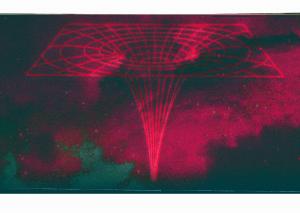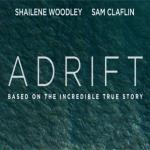Art by the stellar and Cartesian Brian Jocks.
Some years back, I was having a conversation with a priest-scientist, and we ended up covering everything from black holes to evolution. Indeed, he waxed enthusiastic about hoping one day, post resurrection, to get to see a black hole up close. (Post Resurrection Geek Alert!!)
But toward the end of our conversation he stepped back and reminded himself – and me – that as wondrous as science is, it’s not the most important thing in life. Sanctity is. “George Lemaître was a great scientist,” he said. “But he wasn’t a saint….”
This struck me as an odd thing to say because, well… we really don’t know yet whether Lemaître was a saint. He only died in 1966. Thomas More was not officially made a saint until centuries after his death. (Galileo scholar John Heilbron thinks that one day the Church will canonize Galileo.)
As I think about it more, I realize that, for all the enthusiasm for science this priest had, his theological training had not allowed him to fully integrate science into his theology, and into his theology’s regard for the natural order – that is, the natural order created by God. It seems never to have occurred to him that the act of doing science – for a priest or indeed for anyone – could itself be a source of sanctity. Sanctity, according to classical theology and tradition, is too often tied to the externals of devotion, to the study of scripture, and to the idea of personal purity (which in turn seems too often to be based on how sexually continent you were in life, instead of on whether you were actually a charitable human being following the Gospel).
Which brings me to the late Saint Josemaria Escriva: the founder of Opus Dei. Now, I’ll say up front, as someone who has friends in ‘The Work’ and who years ago was invited to join this personal prelature, St. Josemaria’s spirituality is not my cup of tea. Indeed there are passages in his book of meditations, The Way, that I find truly appalling. But I have always put this down to the circumstances of the deeply conservative and very tribal brand of Spanish Catholicism in which he was raised.
Whatever. In my book, he deserves to be a saint because his central idea – that human beings can achieve sanctity through work – was spiritual genius. Of course, he wasn’t the first Christian saint to see this – but he built an entire movement around it.
Now, if you start thinking about science (and realize how difficult, how all-consuming that work can be for those who practice it), you’ll see that there is the potential here for a truly revolutionary view of what we mean by achieving holiness through work (the work of studying God’s creation). Science and all other great human intellectual endeavors offer a path to holiness.
At a time when the Church still has to struggle with the reputation of being hostile to science, I think that this notion, which lies at the heart of a still very traditionalist movement, has the potential over time to help renew Catholic engagement with the secular world.
Perhaps I’m mistaken (or overly optimistic), but my own experience is that more members of Opus Dei (i.e., numeraries and supernumeraries) work in the sciences than do the members of any other religious order or apostolate.
And if there is one thing the Church needs now, it is more day to day work in science, and the inspiration to integrate that work into the faith.
From this perspective, my hero Father Georges Lemaître is certainly to be regarded a saint. And so is Teilhard de Chardin. And so is Pierre Duhem (although more for his work in history of science).
If we take seriously the late Saint Pope John Paul’s view that science can purify religion of error and superstition, then the Church needs to embrace a broader idea of how human beings can achieve holiness through their intellectual labors.
*****
John Farrell is a freelance writer based in Boston. The author of The Day Without Yesterday: Lemaître, Einstein and the Birth of Modern Cosmology, he’s written articles on science for Wall Street Journal, Aeon, Nautilus, First Things, and takes a special interest in how science challenges religious faith–especially his own.













